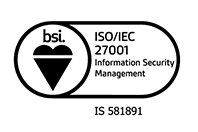In today’s world, where online security threats are increasingly sophisticated, implementing a strong password policy is crucial to safeguarding sensitive information. Your password acts as the first line of defense against unauthorised access to your accounts and confidential data. Our cyber security experts at Central Technology have gathered our five essential top tips and password policy best practices that will help you improve your passwords and protect your accounts from malicious attacks.

CT’s 5 Top Tips and Best Practices for Password Security
-
Password length:
The longer the password, the stronger it is. Make sure your password policy stipulates a minimum of 12 characters. Longer passwords can significantly increase the time and effort needed to crack a password, making them more secure.
-
Length trumps complexity:
Whilst adding complexity to your password by using special characters, uppercase letters, and numbers is essential, length is more critical. A lengthy password is harder to crack than a complex password with fewer characters. Therefore, focus on password length while keeping complexity in mind.
-
Easy to remember but hard to guess:
Your password should be something that is easy for you to remember but challenging for others to guess. Avoid using easily discoverable information like your pet’s name or your birthdate as part of your password.
-
Do not reuse passwords:
Never reuse passwords for different accounts. If a hacker gains access to one of your accounts, they could potentially access all of your other accounts that use the same password. Therefore, ensure that every password you have is unique.
-
Consider a password manager:
With so many passwords to remember, using a password manager such as Passwd or Dashlane could be a great solution. Most password managers will help generate strong passwords at the same time as storing them and integrate directly into web browsers for a seamless sign in process to websites.
Best practices to remember when managing passwords for your business or private use
Implementing these best practices, such as using a password manager and avoiding password re-use, can help prevent unauthorised access to your accounts, ensuring the safety of your sensitive information. A robust password policy should be a part of every organisation’s security strategy, along with other security measures like two-factor authentication and regular security audits.
Remember, securing your IT starts by reviewing your infrastructure. Take the first step towards securing your IT infrastructure by reviewing your current security measures and contact us today for support with your IT security needs or download our guide on password security.






